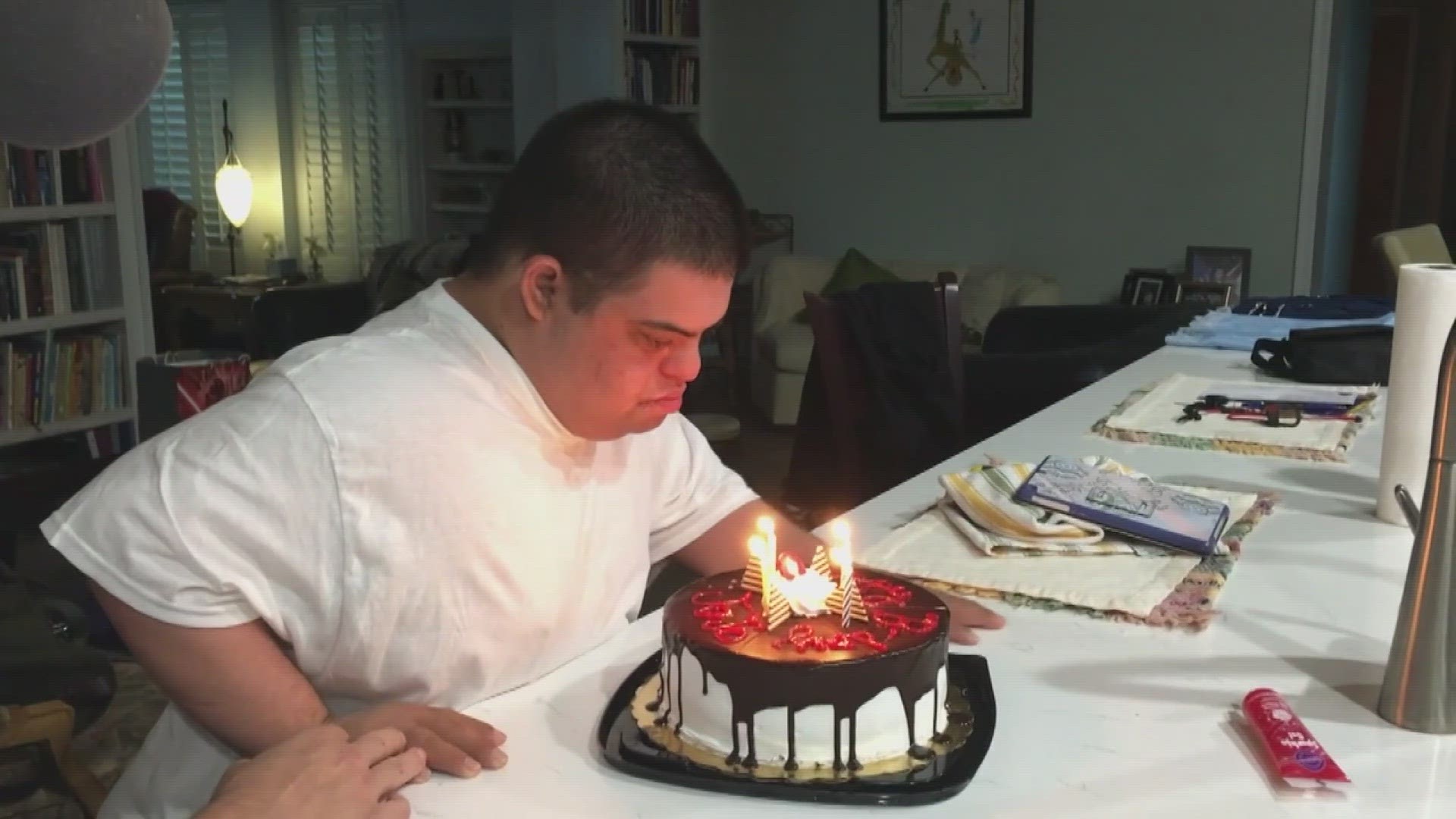JACKSONVILLE, Fla. —
It's been four years since Marcia Scheppler, lost her son, JoJo Thompson.
“He was God's child and more dear to my heart than anybody could have been, and I miss him terribly,” Scheppler said. "I can't do anything about what happened to my son, but I would like to protect the other children elsewhere so no other parent has to go through this. "
He died after she says the first Florida hospital she took him to in distress refused to treat him.
“He was a two-year-old in a 29-year-old’s body and he was scared of hospitals, you know, but the charge nurse there stopped everybody from helping us and just refused to treat him,” Scheppler explained. “So, the delay caused septic shock because there's a finite amount of time that you have to treat sepsis before it turns into something more serious.”
JoJo was nonverbal, had autism and Down syndrome. And because he was over 25, not married, and had no children under 25, Florida law prevented his mother from suing for medical negligence.
“It's like saying that my son's life had no value that there was nothing that could be done to punish the hospital for not having protocols to treat people with developmental disabilities.
Thursday, she drove from Lakeland to Jacksonville to share her story with state lawmakers urging them to pass legislation to change the law.
“For four years, I have been speaking out trying to change the law to protect the JoJo’s in Florida. And I'm pleased this year there seems to be a concentrated effort to make that change. Thank you for all the hard work on Senate Bill 248. I have some revisions that would make it safer in Florida for people with intellectual and developmental disabilities,” Scheppler told lawmakers.
State Senator Clay Yarborough who filed Senate Bill 248 that would allow families like hers to sue if the Department of Health or Agency for Health Care Administration found probable case, listened to those opposed to Florida’s so-called “Free Kill” law.
“To think my dad's life mattered any less cause he was single, and I was over age of 25, it's just wrong,” Sabrina Davis said. “I do believe there are successful ways we can create and come together to allow equal for families where there really is medical malpractice found, and it will do nothing but raise the standard of care and help all Floridians have safer and better health care in Florida.”
Davis and Scheppler know changing the law won’t allow them to sue, but they hope it will help other families. While they hold on to precious memories of their loved ones, they are holding out hope that lawmakers will hear their pleas for change and take action.
“I put him next to me when I say my prayers in the morning and at night,” Scheppler said. “I still read the Bible to him at night, to his picture. And I hope he’s looking down at me is he's happy with the fact that I'm trying to protect people like him, so this doesn't happen to anybody like this again."

